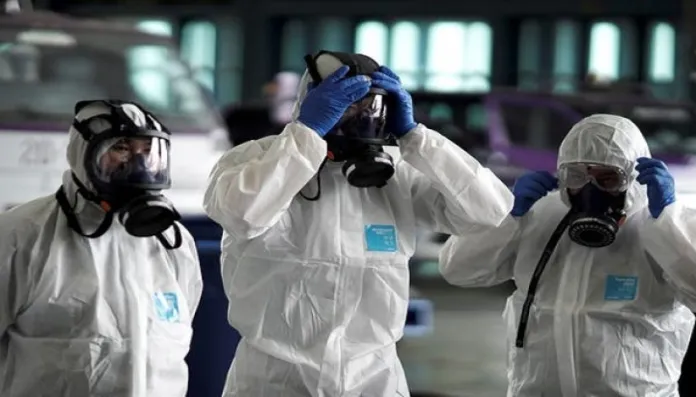
Living in a globalized and interconnected culture, people and the diseases they carry can travel quickly and readily to any region within hours. Epidemics of infectious diseases are growing increasingly frequent, especially in developing countries where they have a detrimental impact on people’s health, social situations, and economies.
A disease outbreak occurs when it spreads quickly through a population to a large number of hosts in a short amount of time. An epidemic disease has no regard for individual health; it can strike members of society at any age.
Since its inception, the globe has experienced a variety of epidemics that have taken many lives and brought widespread harm to nations. In the previous century, for example, the world has been plagued by six different types of epidemics, each having catastrophic effects on the economy, people’s health, and social situations.
Typhus (a disease caused by microorganisms carried to people by fleas, lice, and chiggers) killed nearly 3 million Russians between 1918 and 1922.
As a result, massive preparedness is required at all levels, from the local to the national, to properly resist any future epidemics.
Every virus that spreads inside a community has the potential to jeopardize public health security since it can have major health consequences and impede international trade and travel. Epidemic preparation encompasses all of the operations that must be carried out at all levels, from the national to the health facility, in order to respond effectively and quickly to disease outbreaks.
In Ghana, proper preparation is required before, during, and after any epidemic crisis. Preparing for these unforeseeable health issues should be approached with the utmost urgency.
In order to secure the welfare of its citizens, the government must make appropriate financial resources available to ensure that these projects are completed.
Furthermore, the government must give appropriate financing for the education of a specialist group of nurses and doctors in the field of epidemiology in advance of any epidemic. These individuals must be adequately trained in order to be prepared for any unexpected epidemic disease.
Training for such organizations will be critical since the knowledge and skills gained throughout the training will enable them to recognize and pre-inform the county of any upcoming epidemic, as well as its preventative and control actions both during and after the sickness.
In addition to the aforementioned preparation techniques, the government should maintain an account where a significant sum is placed in monthly just for a potential epidemic that may hit the country.
This is critical for the aim of having previously existent finances for vaccination and other health equipment that will be required in the battle against any disease. Adopting this technique would ensure that the economy remains stable and operational because there will be no need to borrow or seek finance.
In order to assist in nation-building and ensuring the welfare of its citizens, the government must invest significant financial resources in adequately preparing for any pandemic that may arise, because the investments made in adequate preparation cannot be compared to the damage caused by this epidemic disease.
A fundamental human right, everyone must have unrestricted access to health care at the appropriate time and location, free from financial burden.
In my opinion, every Ghanaian should be able to afford health services and have access to them whenever and wherever they are needed.
This is why the Ghanaian government needs to pay attention to the many voices of worried citizens, such as the constant requests from a dynamic advocacy group like Send Ghana and its network members, to assist in the establishment of a Public Health Emergency Fund as soon as possible in order to support emergency responses during epidemic crises and, more importantly, enhance healthcare delivery in the nation.
Mr. President, The Excellency of Ghana, It’s time for Nana Addo Dankwa, Akuffo Addo, to get your house in order. This means calling the Ministry of Health (MOH), the Ghana Health Service (GHS), and the Ministry of Finance to the table. Demand that a Public Health Emergency Fund be established right away to support national financing in order to help Ghana develop a strong health system that can withstand the effects of disease outbreaks.

